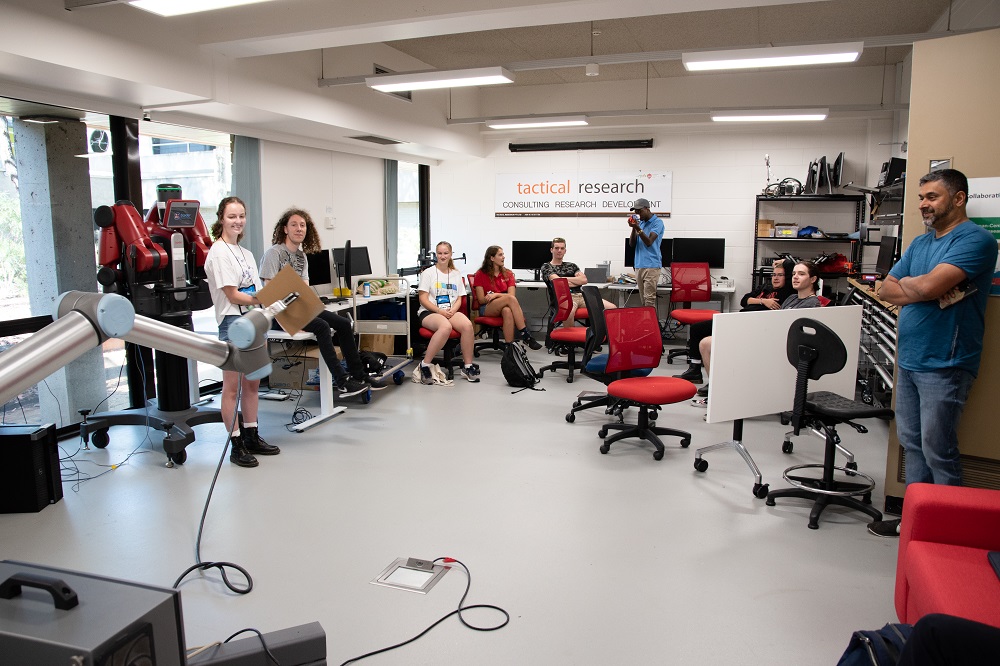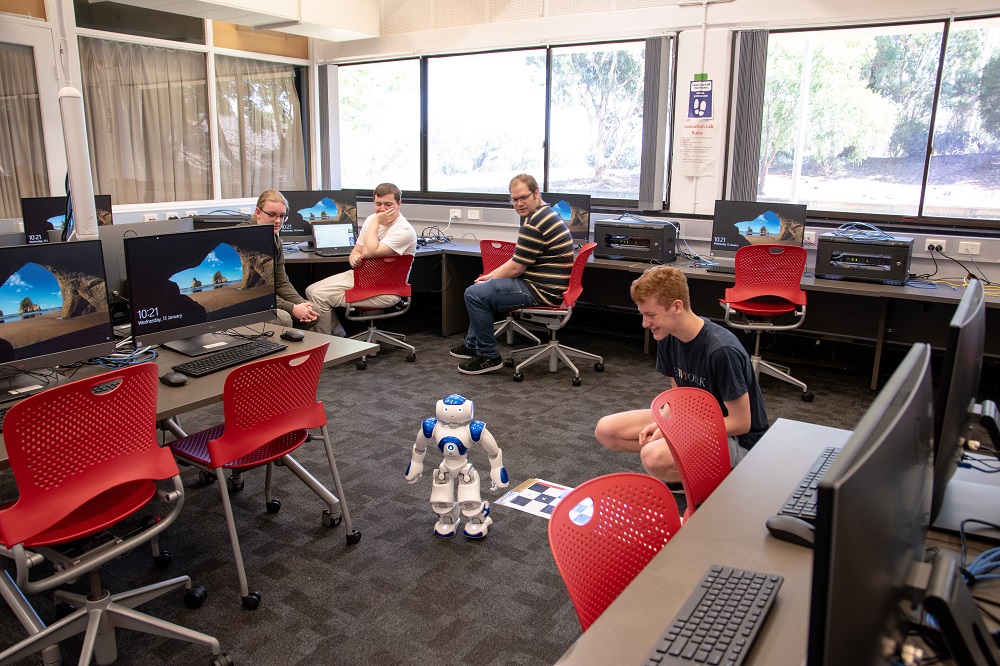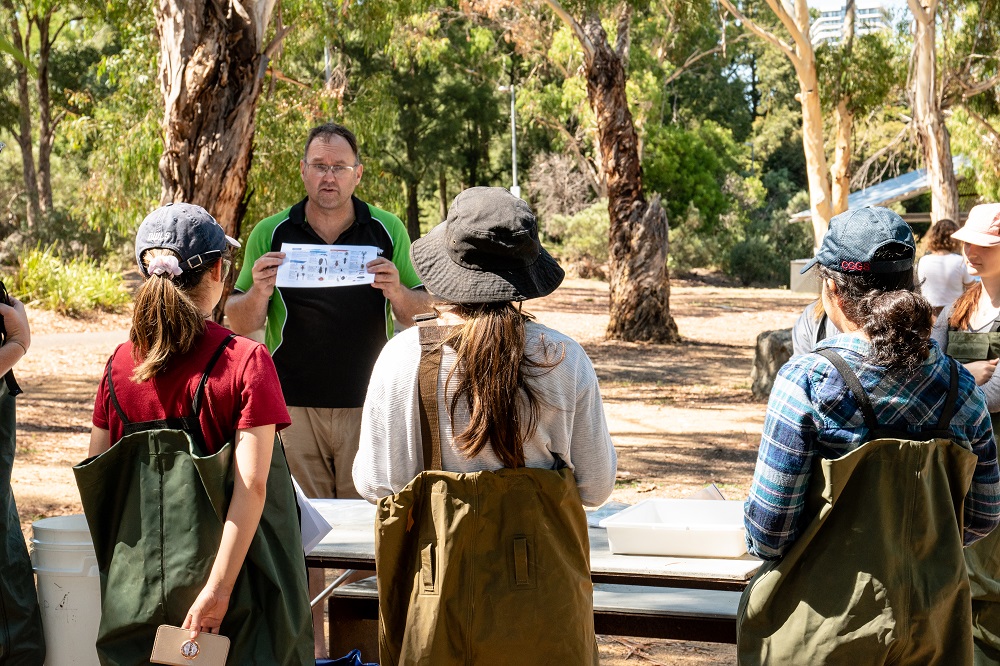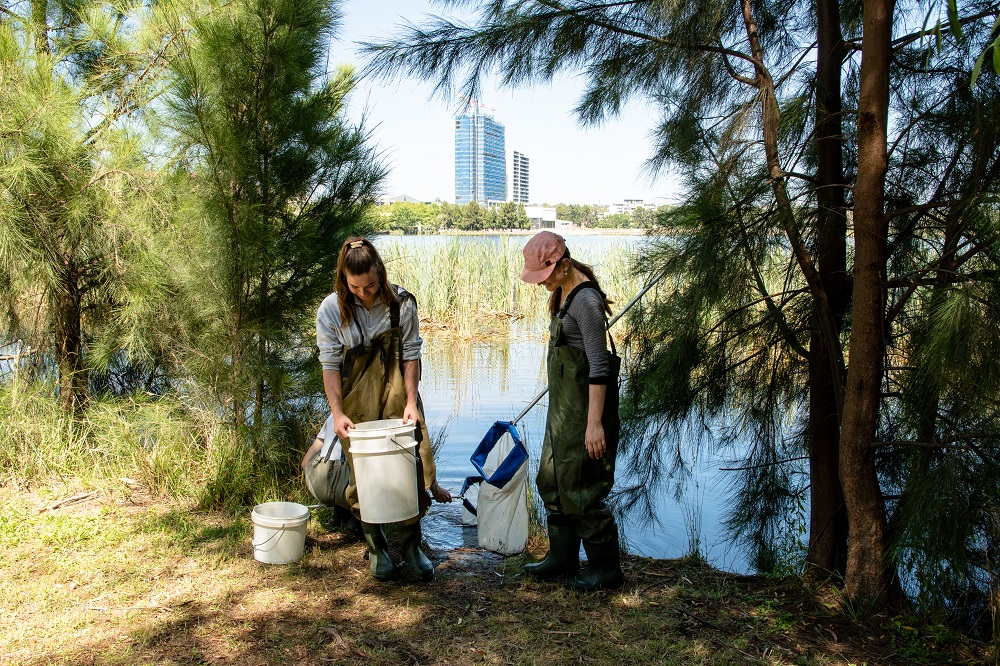Libby Roberts
19 January 2021: The University of Canberra’s Faculty of Science and Technology hosted 29 students from the National Youth Science Forum (NYSF) summer program recently, organising hands-on experiences in robotics and water science.
The students, who are from the ACT and surrounding regions, visited the University on 13 January, exploring their passion for Science, Technology, Engineering and Mathematics (STEM) via a host of activities formulated to cater to their interests.
“The NYSF is important as it allows students to explore STEM. Most students are at a critical point when they have finished Year 11 and are going into Year 12, and deciding what they want to do,” said Professor Roland Goecke, who led the students in a robotics workshop.
“The program is a great way to explore different subjects, or if they like a certain area already, they can find out exactly what is involved in it.

“We held two robotics workshops so the students could get some hands-on experience working with different robots. From the UR-10 robotic hand that can grasp items, in the workshop led by Dr Damith Herath, to the more human-looking robots like Baxter, to the Nao Robots.
“The students explored different concepts and understandings, like error margins. For example, a robot might be programmed to do a certain move or travel a certain distance but it’s not going to be precise – so in any engineering, you always have to work with an error margin, adjust for that, and understand how to build systems that can operate within it.”
Roland wanted the students to realise that there are still many areas in robotics and Artificial Intelligence that need young people to come through and explore.
“When you are young and contemplating what you want to do in a field, you don’t want the feeling that it is all done and that there is nothing left for you to add – when in fact there is plenty left in robotics and AI.”

Professor Ross Thompson led 16 students, aged between 15 and 17, on a field trip to Lake Ginninderra.
“We sampled aquatic insects to assess the ecological health of the lake. Then we went back to campus to identify the insects, and introduce a number of other research areas. The overall aim was to understand how urbanisation affects waterways and how that can be managed,” said Professor Thompson.
“Mostly, this was completely new to the students although it drew on themes they had encountered in school in chemistry, environmental science and sustainability.”

Professor Thompson hopes the students took away an understanding of the diversity of science and the many opportunities it can bring them.
“We also extensively discussed approaches to planning their studies and their careers.
“The program gives the students a chance to explore areas of science they may not have encountered at school and find what interests them. There is also an important social element, with students meeting like-minded people. This is particularly important for kids from small schools in regional areas,” Professor Thompson said.

Both Professors Goecke and Thompson have been taking part in the NYSF since 2013. With the 2020 program cancelled due to the smoke from the bushfires around Canberra, it was great to have the students come onto campus this year.
“I had one student who was supposed to come last year – he has since finished Year 12 but still wanted to come and take part in the activities this year, which was fantastic,” Professor Goecke said.
Higher Degree by Research (HDR) students David Hinwood, James Ireland, Robbie Armstrong, and Chris Wu helped with the robotics workshops and Le’a Knight helped with the Lake Ginninderra field trip. The HDR students were also able to share their education journey with the students, to show them just where they might be able to go too.


